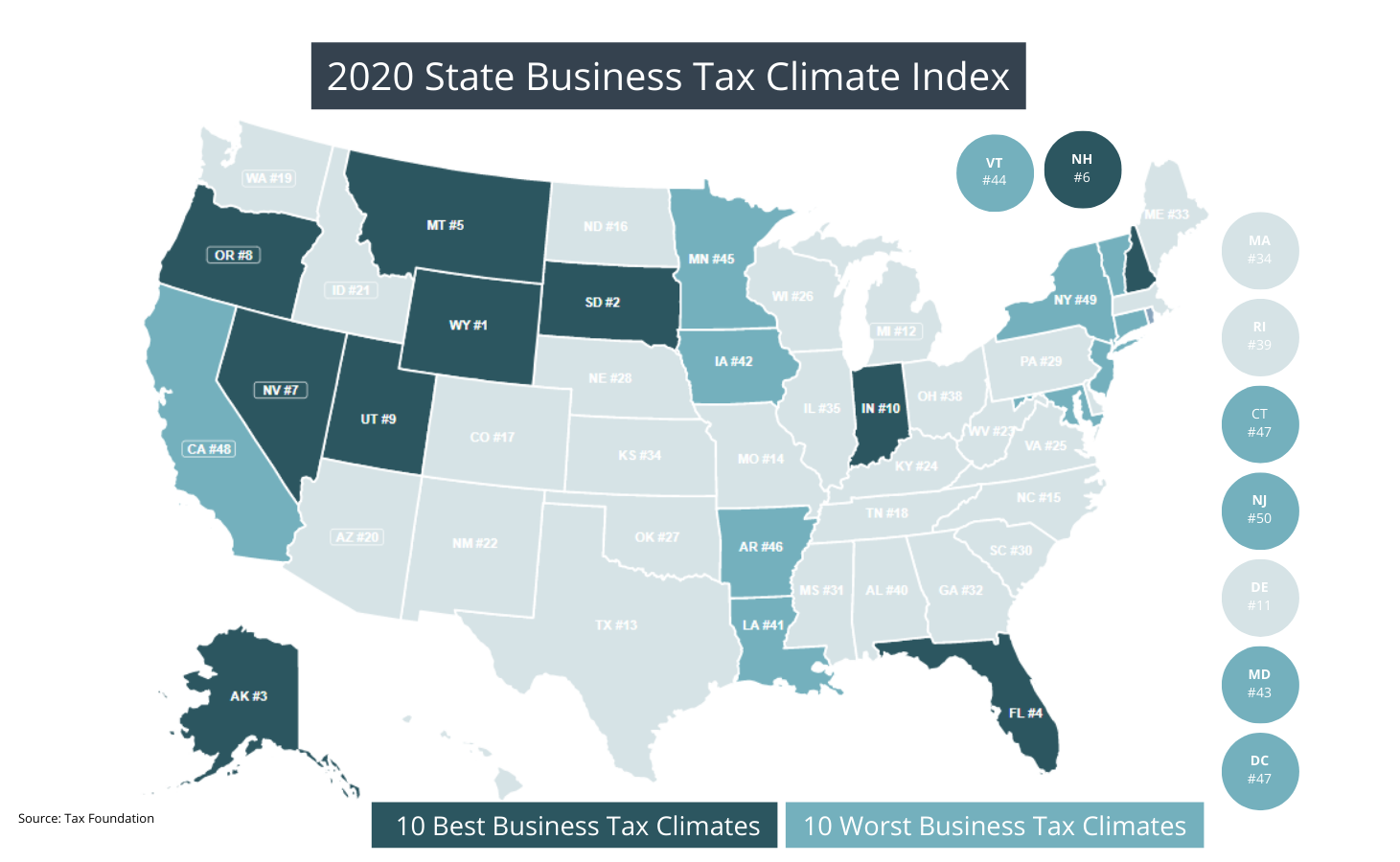Massachusetts is home to world-renowned brands including Dell EMC. The state is also favorably geared to boost business, with various types of tax credits available for businesses registered as C or S Corporations. But, while there’s ample room for established businesses to thrive in Massachusetts, the state also offers great resources and support for startups in its infancy, with different types of business incentive programs available to all businesses. Further to this, Massachusetts boasts some of the country’s most prestigious universities, making a highly-skilled workforce easy to come by in this state.

If you have recently expanded your business into this state, or if you’re considering doing so, it’s a state in which your business can thrive. It is important for you to understand the cost of apportionment when it comes to tax obligations when expanding your business into any new state – this will help you accurately report earnings to the IRS and local governments.
S Corporations
- Filing Requirements
- Entities that are S corporations for federal purposes are S corporations for Massachusetts purposes and generally file a Form 355S. S corporations that are security corporations must file a Form 355SC. Items of S corporation income, loss, and deduction are passed through the S corporation to the shareholders, and reported and taxed on their return. For Filers of 355S, S corporations are liable for the non-income measure of the corporate excise, and for the income measure of the corporate excise on any income that is taxable to the S corporation federally. S corporations owe at least the minimum tax. S corporations with total receipts of $6 million or more are liable for the income measure of the corporate excise at the following rates:
- 2.0% on net income subject to tax if total receipts are $6 million or more, but less than $9 million; or
- 3.0% on net income subject to tax if total receipts are $9 million or more.
- Allocation & apportionment
- Three Factor Formula: Double-Weighted Sales where sales are 50%, payroll is 25% and property is 25%
- Market-based apportionment
- Massachusetts follows the market-based rule in sourcing receipts from the performance of services to the state. Sales of services are sourced to Massachusetts if and to the extent that the taxpayer’s market for the sale is in Massachusetts. A taxpayer’s market for a sale of a service is in Massachusetts to the extent the service is delivered to a location in Massachusetts.
Partnerships
- Filing Requirements
- A partnership is not directly subject to income tax. Instead, each partner is taxed on their share of the partnership income, whether distributed or not. Returns are due annually, by of 15th day of the third month after the close of the partnership’s taxable year, calendar, or fiscal. See Technical Information Release (TIR) 17-5. The partnership must issue Schedules 3K-1 to individual partners. Copies of Schedules 3K-1 must be submitted to the Department of Revenue with Form 3. The state forms to file are Form 3 and Schedule 3K-1. The federal forms to file are Form 1065 or 1065B & Schedules K-1.
- Allocation & apportionment
- Three Factor Formula: Double-Weighted Sales where sales are 50%, payroll is 25% and property is 25%
- Market-based apportionment
- Revenues received from customers within the state
- Filing Requirements
Employees & individual filers
- The following individuals are required to file a 2021 Massachusetts individual income tax return:
- For residents, the 2021 Personal Income Tax Rates are Effective for tax years beginning on or after January 1, 2020, and the tax rate on most classes of taxable income is changed to 5%. The tax rate on short-term gains from the sale or exchange of capital assets and on long-term gains from the sale or exchange of collectibles (after a 50% deduction) remains at 12%.
- You must file Massachusetts Form 1-NR/PY, Nonresident/Part-Year Resident Income Tax Return if you were not a resident of Massachusetts for any part of the year and the lesser of either:
- Your Massachusetts source income was more than $8,000; or;
- Your Massachusetts source income was more than your personal exemption amount multiplied by the ratio of your Massachusetts income to your total income. You also must file Form 1-NR/PY if you were a resident of Massachusetts for part of the year and you had more than $8,000 in gross income during that time, whether received from sources inside or outside of Massachusetts. To see whether you are a full-year resident, nonresident, part-year resident, or a nonresident and part-year resident, determine which category applies to you, see the COVID-19 page for more information about special rules related to residency and source income for the tax year 2021.
- You are a full-year resident if your residence (domicile) was in Massachusetts for the entire taxable year or if you maintained a permanent place of abode in Massachusetts and during the year spent more than 183 days, in the aggregate, in the state. If you fit this description, you should file Form 1, Massachusetts Resident Income Tax Return.
- You are a nonresident if you are not a resident of Massachusetts as defined above but received Massachusetts source income (e.g. from a job in Massachusetts). Fill in the Nonresident oval at the top of the form if this category applies to you. A nonresident who is filing Form 1-NR/PY to report income not included on a Nonresident Composite Return filed on their behalf also should fill in the Nonresident oval.
- You are a part-year resident if, during the taxable year, you moved to Massachusetts or established a permanent place of abode here and became a resident, or you terminated your status as a Massachusetts resident to establish a residence outside the state. Fill in the Part-year resident oval at the top of the form if this category applies to you.
- If you were a Massachusetts resident for part of the 2021 tax year, and while you were not a resident of Massachusetts you received Massachusetts source income (e.g., from a job in Massachusetts), file as both a nonresident and part-year resident. Fill in the Filing as both a nonresident and part-year resident oval below the address section of the form if this category applies to you. Complete Schedule R/NR, Resident/ Nonresident Worksheet, to calculate the portion of income earned while a nonresident and the portion of income earned while a part-year resident.
- Fill in the Nonresident composite return oval if this return is being filed as a composite return on behalf of nonresident professional athletic team members.
- The following individuals are required to file a 2021 Massachusetts individual income tax return:

Download our Multi-State Tax Filing Requirements Guide
Ensuring Accurate Tax Filing
Keeping a handle on these different laws and tax implications might be difficult for your staff members but can be accomplished by outsourcing a CPA. Allow an expert who deals with business structuring, accounting, and taxation regularly set up accounting software to factor in applicable tax laws for each US state.
Fusion CPA recently expanded into new states bringing us firsthand experience and knowledge. We have a team of certified public accountants who are highly skilled in handling multistate taxes. Our team of professionals understands the federal and state laws in various states and jurisdictions.

_______________________________________________________
This blog article is not intended to be the rendering of legal, accounting, tax advice or other professional services. Articles are based on current or proposed tax rules at the time they are written and older posts are not updated for tax rule changes. We expressly disclaim all liability in regard to actions taken or not taken based on the contents of this blog as well as the use or interpretation of this information. Information provided on this website is not all-inclusive and such information should not be relied upon as being all-inclusive.

